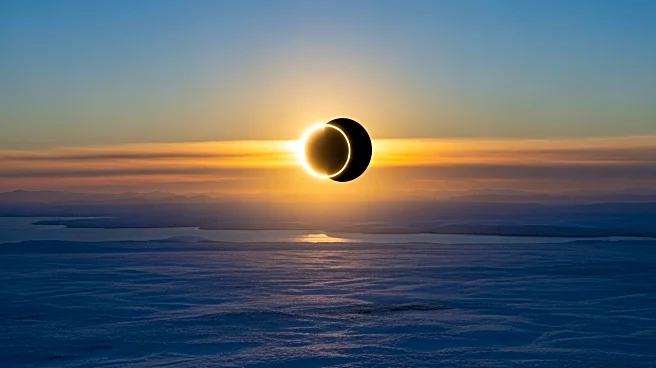What's Happening?
The last solar eclipse of 2025 is set to occur on September 21, visible in specific regions including Antarctica, Australia, and New Zealand. According to reports, the eclipse will be observable in Antarctica from 4:49 a.m. to 6:53 p.m. local time, in Australia from 6:13 a.m. to 7:36 a.m., and in New Zealand from 5:41 a.m. to 8:36 a.m. This partial solar eclipse will also be visible over the Pacific and Atlantic Oceans. However, it will not be visible in India as the Sun will have already set by the time the eclipse occurs. Astronomy enthusiasts in India can watch the event via online live streams.
Why It's Important?
Solar eclipses are significant astronomical events that attract global attention from scientists and enthusiasts alike. This eclipse provides an opportunity for scientific observation and public engagement in regions where it is visible. The event highlights the importance of safe viewing practices, as regular sunglasses are insufficient for protection against the Sun's rays during an eclipse. Certified eclipse glasses with special solar filters are recommended to prevent eye damage. The eclipse also serves as a reminder of the natural phenomena that continue to intrigue and educate people worldwide.
What's Next?
The next solar eclipse is scheduled for February 17, 2026, which will be an annular eclipse visible in Antarctica, with partial visibility in Africa, South America, and parts of the Pacific, Atlantic, and Indian Oceans. Later in August 2026, a total solar eclipse will occur, offering further opportunities for observation and study.










